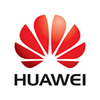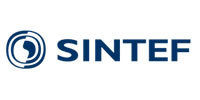

 |
The Eleventh International Conference on Mobile Ubiquitous Computing, Systems, Services and Technologies UBICOMM 2017 |
|
|||||||||||||||
| Details: |
ISSN: 2308-4278 |
conference contact: mp@iaria.org |
||||||||||||||||||
All tracks/topics are open to both research and industry contributions.
Special tracks:
WoT-FACET: Web of Things: Find, Access, Control Every Smart Thing
Chair and Coordinator: Fabio Viola (PhD Candidate), Advanced Research Center on Electronic Systems (ARCES), University of Bologna, Italy fabio.viola@unibo.itCPSEA: Cyber-Physical Systems and Emerging Applications
Chair and Coordinator: Dr. Ali Balador, Senior Researcher, RISE SICS Västerås, Sweden ali.balador@ri.seUBDH: Ubiquitous Big Data in Healthcare
Chair and Coordinator: Vishakha Sharma, PhD, Georgetown University, Washington, D.C., USA vs545@georgetown.eduAEU3DA: Advances in Education with Ubiquitous 3D Applications
Chair and Coordinator: Aliane Loureiro Krassmann, Federal Institute Farroupilha – Federal University of Rio Grande do Sul, Brazil alkrassmann@gmail.comMVE: Mobile Virtual Environments
Chair and Coordinator: Jon Hjelmervik, SINTEF - Trondheim, Norway Jon.M.Hjelmervik@sintef.noECFoF: Edge Computing in Factories of the Future
Chair and Coordinator: Prof. Dr.-Ing. Martin Ruskowski, German Research Center for Artificial Intelligence (DFKI), Germany Martin.Ruskowski@dfki.de
Tracks:
Ubiquity trends and challenges
Ubiquity services in SDN, SDX, and NFV; Ubiquity in 4G/5G and advanced mobile Internet; Ubiquity and Internet of X (everything, things, people, etc.); Ubiquity with Big Data and mobile networks; Ubiquity withing sensing and sensor networks; Energy-aware in ubiquitous networks; Mobility and wireless; Mobility enabling protocols; Ubiquitous software; Ubiquity on knowledge and service discovery in mobile environments; User presence in ubiquitous environments
Fundamentals
Semantics of ubiquity; Ubiquitous knowledge; Knowledge discovery mechanisms; Profiling ubiquitous environments; Ubiquitous technologies for education, learning, and training
Mobility
Ubiquitous computing; Wearable computing; Mobile computing; Nomadic computing; Mobile commerce; Mobile learning
Information Ubiquity
Ubiquitous information appliances; Information retrieval and filtering; Context awareness; Control of ubiquitous data; Data management and processing; Data replication, migration and dissemination; Ubiquitous computing and Internet of Things
Ubiquitous Multimedia Systems and Processing
Multimedia content recognition, indexing and search; Mobile graphics, games and entertainment; Ubiquitous multimedia applications and systems; Streaming mobile multimedia; Mobile media management; Multimedia ubiquitous platforms; Multimedia Indexing and Compression; Image and Signal Processing; Virtual reality in ubiquitous systems
Wireless Technologies
Bluetooth; 802.11.x; 802.15.x; ZigBee; WiMax
Web Services
Web 2.0; Semantic web; Web services; Ontology; Web Services evolution; Web Services applications
Ubiquitous networks
Ubiquitous networks; Network management; Network performance evaluation; Networks and technology convergence; Internet access in ubiquitous systems; Ubiquitous mesh, ad hoc and sensor networks; RFID; Reconfigurability and personalization of ubiquitous networks
Ubiquitous devices and operative systems
Design of devices for ubiquitous systems; Mobile devices; Wearable devices; Embedded systems; Operative systems for ubiquitous devices; Real-time operating systems and scheduling
Ubiquitous mobile services and protocols
Frameworks, architectures, and languages for ubiquitous services; Queries, transactions and workflows in mobile and ubiquitous Networks; Algorithms for ubiquitous systems; SLA/QoS in ubiquitous services; Ontology based services; Location-based services; Protocols and interaction mechanisms for ubiquitous services; Mobile services and service convergence; Service discovery mechanisms; Tracking in ubiquitous environments; Measurement, control, and management of ubiquitous services; Design and development of ubiquitous services; Wireless/mobile service delivery
Ubiquitous software and security
Ambient components; Agent technologies; Software for spontaneous interoperation; Dependability guarantees; Security; Key Management and Authentication; Trust; Privacy; Fault-tolerance; Multimedia Information Security
Collaborative ubiquitous systems
Cooperative networks for ubiquitous systems; Cooperative applications for ubiquitous networks; Handheld and wearable systems for interaction in collaborative groups and communities; Ad hoc collaboration in ubiquitous computing environments; Awareness of collaboration and of work environment; Inherently mobile collaborative work
Users, applications, and business models
Mobile user interfaces; Ubiquitous user-generated content (weblogs, wikis, etc.); Mobile and ubiquitous computing support for collaborative learning; User modeling and personalization; Context- and location-aware applications; Toolkits, testbeds, development environments; Tools and techniques for designing, implementing, & evaluating ubiquitous systems; Constructing, deploying and prototyping of ubiquitous applications; Evaluation of user models for ubiquitous environments; On-line analytical techniques; Human-computer interaction in ubiquitous computing environments; Ubiquitous e-Development (business, science, health, etc.); Case Studies; Emerging industrial/business/scientific ubiquitous scenarios; Ambient intelligence; Social issues and implications of ubiquitous system







